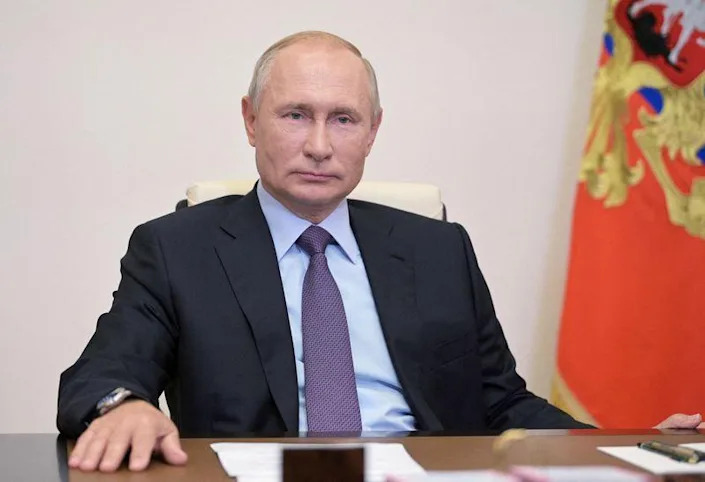By Emmanuel Yashim
The power struggle between Moscow’s leadership and the Wagner mercenary army has developed into an unprecedented power struggle.
Earlier on Saturday, Russian President Vladimir Putin spoke of an “armed mutiny” after the uprising by the head of the Wagner mercenary army, Yevgeny Prigozhin, and has told the rebels they will face “inevitable punishment” in a televised address to the nation.
Wagner mercenaries took control of Russian military installations in the south of the country, near the border with Ukraine in the city Rostov-on-Don, including an airfield.
Fighting also broke out there.
The armed insurgency has since advanced to the Voronezh region some 470 kilometres from Moscow, Russian authorities said.
“As part of an anti-terrorist operation, the Armed Forces of the Russian Federation are carrying out necessary operational-combat measures on the territory of Voronezh region,” Gov. Alexander Goosev wrote on Telegram on Saturday afternoon.
Goosev did not explain specifically against whom the army was fighting in the Voronezh region.
However, there had been previous reports that Wagner fighters had occupied individual military installations there.
The information could not be independently verified.
The governor also reported a burning fuel depot and some 100 firefighters were involved in the extinguishing work.
It was initially unclear whether there was a connection to the fighting.
Wagner’s thousands of fighters have been an important ally for Moscow in the war of aggression against Ukraine, which began 16 months ago.
Prigozhin, who until now was considered a close ally of Putin and played a central role in Moscow’s war against Ukraine, has openly opposed the military establishment, accusing it of poor leadership.
Putin branded Prigozhin, the head and founder of the mercenary group, a traitor on Saturday.
“This is a stab in the back of our country and our people,” Putin said.
The mercenary chief then accused Putin of completely misjudging the situation.
“The president is gravely mistaken,” he said in a voice message on his Telegram channel.
Describing his own role, he said, “We are patriots of our homeland.”
This was the first time the mercenary chief, who says he has about 25,000 fighters at his disposal, has openly challenged Putin.
The mercenary chief then accused Putin of completely misjudging the situation.
“The president is gravely mistaken,” he said in a voice message on his Telegram channel.
Describing his own role, he said, “We are patriots of our homeland.”
This was the first time the mercenary chief, who says he has about 25,000 fighters at his disposal, has openly challenged Putin.
The Russian armed forces have about 1.5 million members.
Chechen leader Ramzan Kadyrov announced the deployment of his troops to support the Kremlin against the armed uprising of the Wagner mercenaries.
“Fighters from the Ministry of Defence and the National Guard of the Chechen Republic have already left for the tense areas. We will do everything to preserve Russia’s unity and protect its statehood,” Kadyrov wrote on Telegram.
In Ukraine, the latest developments in the neighbouring country were closely followed.
Ukrainian President Volodymyr Zelensky wrote on Twitter, “Anyone who chooses the path of evil destroys himself.” The armed uprising is a clear sign of Putin’s weakness, he wrote.
Putin confirmed the blockade of important facilities in Rostov-on-Don by the mercenary force and called on the Wagner fighters to immediately end their participation in criminal acts.
Security precautions were significantly expanded in the Russian capital Moscow on Saturday. During the night, military vehicles were on the move in the city centre.
In Voronezh – as in the capital Moscow and the wider Moscow region – a counterterrorism state of emergency was declared in the morning.
In the Russian metropolis with its more than 13 million inhabitants, increased traffic checks had been introduced on the streets.
Putin is still in Moscow, working in the Kremlin, a spokesman said, after rumours he might have left for St Petersburg.
The Wagner head had called for a fight against Moscow’s military leadership on Friday evening and accused Moscow’s military leadership of attacking his mercenary units.
The FSB and Russia’s Defence Ministry denied Prigozhin’s allegations.
All allegations were false and a “provocation,” the ministry said in a statement.
The National Antiterrorism Committee also called the allegations baseless. (dpa/NAN)






